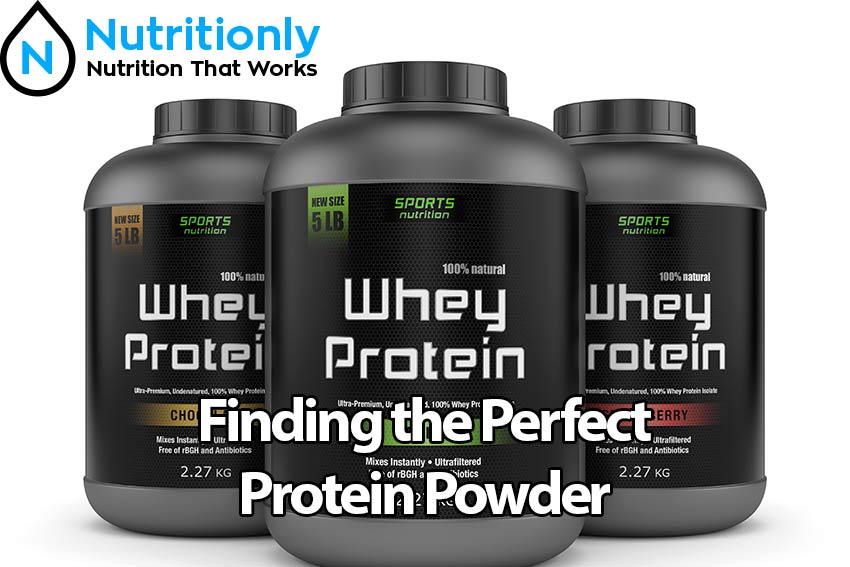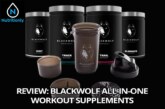 In a perfect world, we wouldn’t need to supplement our protein or anything for that matter. However, the world is far from perfect and there is no shortage of money hungry sales teams out there. How do you really know what you’re getting? How do you know what you need? What about what you don’t need? Well, you’ve found the right place. At Nutritionly.com, we strive to give you the best information out there. Information you can use to help you become your best self.
In a perfect world, we wouldn’t need to supplement our protein or anything for that matter. However, the world is far from perfect and there is no shortage of money hungry sales teams out there. How do you really know what you’re getting? How do you know what you need? What about what you don’t need? Well, you’ve found the right place. At Nutritionly.com, we strive to give you the best information out there. Information you can use to help you become your best self.
There is no shortage of supplement companies out there, each of them with their own brand and proprietary blends. They change the formulas often and tell you it’s new and improved. In this article, we will sort through the filler stuff and give the basics of what should be in your protein.
Ultimately, it comes down to protein types and what’s in the powder.
Protein Types
Whey
If you’re lactose intolerant, there are now many whey protein powders out there that are lactose free. Whey is the most well-known sources of protein powder. It is well researched and generally safe barring any food allergies.
Egg
All the benefits of eggs, in a nice, neat powder form. If you’re not a fan of eggs, this may be the route for you. You won’t even know it has anything to do with eggs. Once again, egg protein is a great source but eggs are highly allergenic and may not be the best option if you suffer from such allergies.
Goat Whey
Whey and egg can be problematic for some. Goat’s whey can be a great alternative if you find yourself having trouble with egg and whey.
Beef Protein Powders
To my knowledge, I haven’t heard of anybody struggling with beef protein powders from an allergy perspective. Beef protein offers all the necessary amino acids to help rebuild and repair muscle. It’s another great source. It’s like a steak in a shake.
Soy
Soy protein is not tolerated well by most people. While it’s not the best quality, it is a good source for vegans and vegetarians. Check out this article about the good and the bad of soy protein.
Casein
Like gluten and soy, casein is highly allergenic and most people have difficulty digesting it. Most will tell you to take casein before bed because it’s a slow digesting and will feed your muscles overnight. This isn’t necessary. Most people forget how long digestion takes. If you’re eating quality, protein filled foods, they will more than sustain you through the night. If you can’t go without something before bed, go with cottage cheese instead.
Ingredients
Beware of filler proteins. There should be a minimal amount of ingredients. Often times, you’ll find things like lecithin and xanthin gum. Don’t worry about these ingredients so much. They are used just to provide the thickness and don’t affect the body.
The first ingredient that should be in your protein should be the type of protein it’s advertised to be. For instance, if it’s a “Whey Isolate” protein, the first ingredient better be: “Whey Protein Isolate.” Ideally, you would want it to be cross-flowed/cold-processed ion exchanged. What does that mean? Let me put it this way, if you bought steaks at the grocery store but didn’t plan on eating them until the next day, would you leave them on the counter or put them in the fridge?
That’s exactly what happens when it’s cold-processed. The amino acids and integrity of the protein are far more preserved than the air-processed. That’s critical to the overall use out of the protein. If you’re not able to utilize these amino acids, you’re wasting your money.
Things that should not be in your protein:
- GMO
Look for the “Non-GMO” label on your protein. Nowadays, if it’s not labeled “Non-GMO,” chances are that it has genetically modified organism (GMO). While not all are bad, it’s best to avoid them as much as possible. There is much debate on this issue but you will not be missing any necessary nutrients by avoiding them.
- Gluten
While it’s not necessary for everybody to avoid gluten, it may be a good idea to do so. A lot of people are intolerant to this and they don’t realize it. Once again, you will not be missing any nutrients by avoiding gluten.
- Minimal Sugars
The last thing you want to do is overload your body with a bunch of extra sugars. It’s not necessary. Stick to powders that have 5g or less per serving.
Protein Powders for Weight Gain
Proteins that are labeled as “Mass Gainers” usually consist of a lot more carbohydrates. For those who struggle to gain weight, these are solid options to increase your caloric load. They can become problematic if they keep you too full and make you unable to get in the necessary calories and macros to build muscle so be aware of that.
Generally, these “Mass Gainers” are a bit more expensive than your standard protein so be sure to assess the cost to benefit ratio. You may find that a standard protein powder, as illustrated above, will serve you better. Most people prefer to eat their carbs rather than drink them.
“Mass Gainers” are beneficial, but are not necessary to put on lean muscle. They should not take the place of whole food. Whole foods should make up the majority of your diet. These protein powders are designed to be supplemental to a great diet and exercise routine.
As you can see, there are a variety of different types of proteins available. If you want to see which product we recommend, then please check this article about best proteins today.





